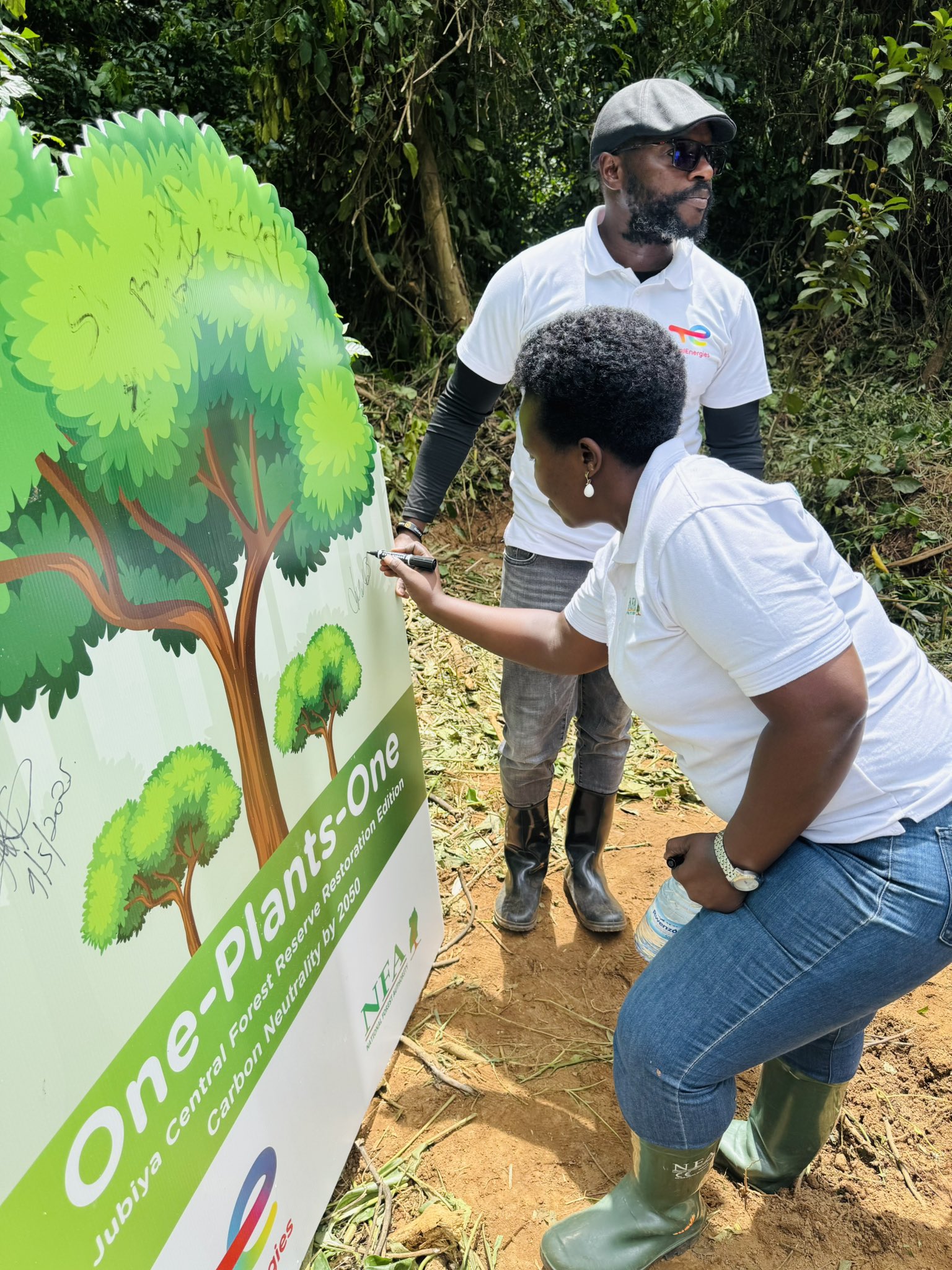
IS THE TOTALENERGIES–NFA PARTNERSHIP A GAME CHANGER FOR UGANDA’S FORESTS?
By Denis Mpayira | EcoNews | May 18, 2025
In a decisive step toward reversing forest loss and building climate resilience, TotalEnergies EP Uganda and the National Forestry Authority (NFA) have teamed up to restore 38 hectares of degraded land in the Jubiya Central Forest Reserve in Masaka City.
This bold move is part of a growing trend across the globe: investing in nature as a solution to the climate crisis. As deforestation continues to threaten biodiversity and fuel global warming, partnerships like this are increasingly seen as essential—not just locally, but globally.
The initiative kicked off with the symbolic planting of 450 indigenous tree seedlings. “This is more than a tree planting exercise—it’s a statement of commitment to a greener future,” said Esther Nekesa, NFA’s Masaka Range Manager. “We are grateful for partners like TotalEnergies who are stepping up.”
From the Amazon to Central Africa, forest restoration has become a priority for nations aiming to meet their climate goals. In Uganda, forest cover has declined sharply in recent decades, making this joint effort between NFA and TotalEnergies timely and strategic.
For TotalEnergies, this reforestation work is tied to its larger ambition of achieving net-zero emissions by 2050. “We are not only reducing our carbon footprint—we’re actively investing in nature,” said a company spokesperson. “Environmental protection is part of how we operate.”
The partnership is also a pillar of the company’s Tilenga Biodiversity Program, which focuses on conserving critical forest ecosystems in Uganda’s Albertine Rift, including the chimpanzee-rich corridors of Bugoma and Budongo. The program targets the preservation of 35,400 hectares of high-value forest and restoration of 1,000 hectares outside protected areas by 2045.
Juliet Mubi, NFA’s Public Relations Officer, noted that the private sector’s role in environmental restoration is no longer optional. “We need these alliances. When the corporate world aligns with conservation goals, we create lasting impact.”
Globally, scientists warn that restoring degraded ecosystems is one of the most effective strategies to capture carbon and slow down climate change. Uganda’s forests, home to rare species and critical water catchments, are a frontline in that fight.
This initiative sends a clear message: nature restoration is no longer a side project. It’s central to national development, corporate responsibility, and planetary survival. And if scaled up, partnerships like this could help turn the tide in the battle against climate change.



